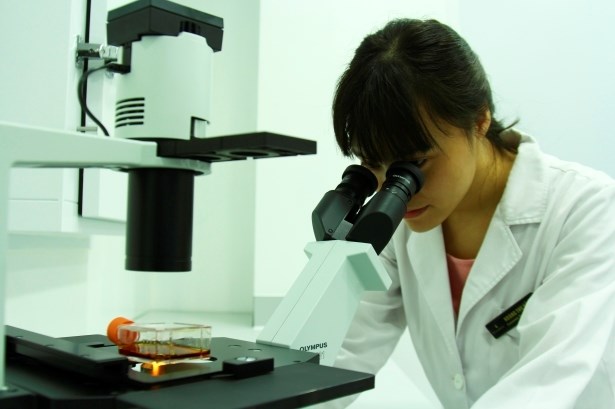
Health experts exchanged experiences at a recent workshop in Hanoi on the application of the microarray-based Comparative Genomic Hybridisation (CGH) technique in reproductive health support and genetic disease detection.
 |
| Doctor performs research at the Gene Technology Centre of Vinmec International Hospital in Hanoi. |
Health experts exchanged experiences at a recent workshop in Hanoi on the application of the microarray-based Comparative Genomic Hybridisation (CGH) technique in reproductive health support and genetic disease detection.
Participants learnt a CGH is a powerful technique for identification and characterisation of copy number variation (CNV) across the genome in CNV analysis and cytogenetic studies.
“CGH microarrays provide high resolution and flexibility for genome-wide or customized zoom-in profiling of genomic aberrations without amplification or complexity reduction,” Yang Lee Chee from Agilent Technologies, South Asia-Pacific and the Republic of Korea, said.
Chee said the advanced technique has been applied effectively and extensively in prenatal screening and cancer detection in many countries worldwide.
The head of the Vinmec International Hospital’s Stem Gene Technology Centre, Le Thi Thanh Huong, said that the new technique is seen as a “gold” standard for providing overall evaluation on the change in chromosomes, especially genetic disorders that cause prenatal heart diseases, Down and DiGeorge syndromes.
Huong said the advanced technique can be used for early detection of cancer, prenatal and congenital malformations in pregnant women at 12-16 weeks gestation period, instead of waiting for a few weeks for detection by classical cytogenetic methods.
The technique can provide accurate results after eight hours at the same cost as the traditional method.
The technique will be applied for the first time at the Vinmec hospital in May and is expected to be extended to other central hospitals later this year.
(Source: VNA)
.




